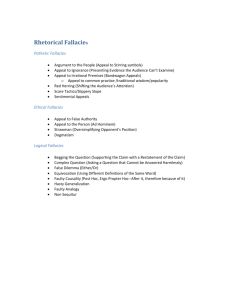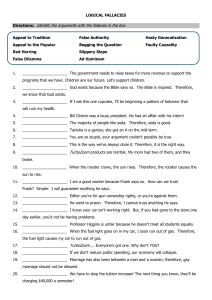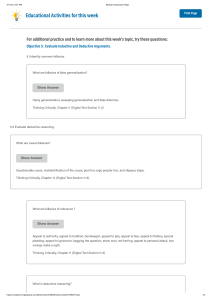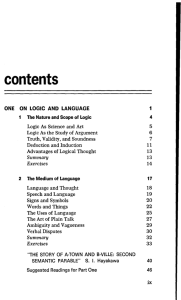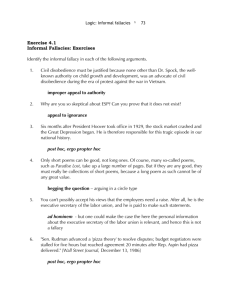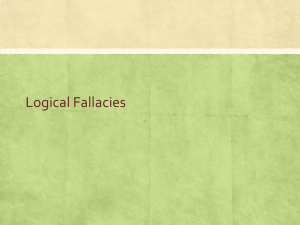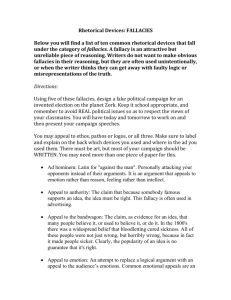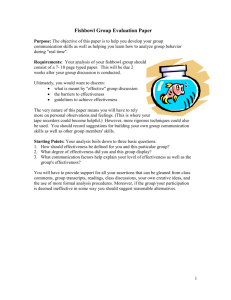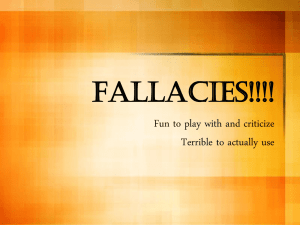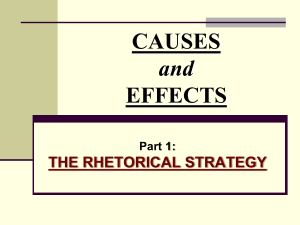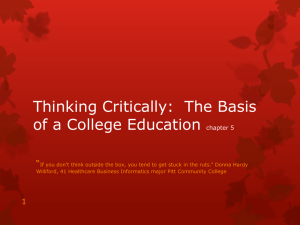Environmental Science 102
advertisement
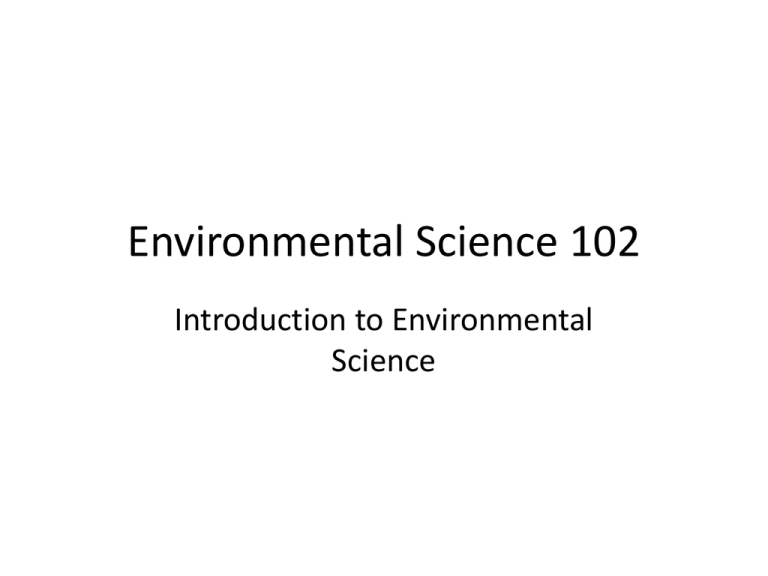
Environmental Science 102 Introduction to Environmental Science Steve Dutch LS 463 465-2246 dutchs@uwgb.edu www.uwgb.edu/dutchs Course Material is Not on D2L! What Is Environmental Science? How Can I Get An A In This Class? • The Good News: There Are Lots of Guides to Help You • The Bad News: They All Say Pretty Much What Your Professors (and Parents) Say • Worse News: It Looks Very Much Like Work • Worst of All: It’s a Time Eater – 2000 Hours to Proficiency How Can I Get An A In This Class? • • • • • • • • Develop Good Study Habits Recognize And Hone Your Learning Styles Use This Textbook Effectively Will This Be On The Test? Decide Today to get an A Failure is an Option – Your Option Deal with problems Immediately Be Prepared to Change Approaches to Truth and Knowledge • • • • • Analytical: Break down into component parts Creative: Look for new approaches Logical: Use orderly approach, test consistency Critical: What are goals? How Good is Data? Reflective: What does it all mean? Learning Styles • • • • • Visual, Spatial: Maps, Diagrams, Charts Verbal, Auditory: Lectures, Discussions Logical: Find Patterns and Structure Active: Hands-On, Labs, Field Trips Where does it say you can only learn one way? What Do I Need To Think Critically? • Skepticism and Independence – Question your own skepticism • Open-Mindedness and Flexibility – But Don’t Let Things Fall Out • Accuracy and Orderliness – Check Facts, Keep them Straight • Persistence and Relevance – Don’t Let Yourself be Sidetracked • Contextual Sensitivity and Empathy – Don’t let Yourself be Manipulated What Do I Need To Think Critically? • Facts • The More the Better – How Science Works – What Science Has Determined – Present Controversies • What’s Known, Alleged, Unproven • Who Supports What – Cultural Awareness Don’t Believe Everything You See, or Hear On the News • What Political Positions are Represented? • Who Stands to Gain? Who’s Paying for the Message? • What Sources are Used and how Credible are They? • Evidence? Statistics? Citations? • One Sided versus Impartial? • Facts and Logic versus Emotional Appeal? Avoiding Logical Errors And Fallacies • • • • • Red Herring Straw Man Ad Hominem (Personal Targeting) Generalization and Anecdotal Evidence False Causality and Denial of Causality – Most of the Time, Things Are What They Seem • Non-Sequiturs, Missing Links Avoiding Logical Errors And Fallacies • Appeal to Ignorance (“Science Can’t Explain …”) – Most of the Time, Science Can Explain It • Appeal to Authority • Begging (Evading) the Question – “Begging” = Raising or Inspiring = Illiterate • Word Games, Double Meanings, Loaded Terms • Slippery Slope, Where do you Draw the Line? • False Dichotomy An issue is decided by: • Facts and logic • Not by who holds the position or why • But those factors can alert us to: – Possible bias – Facts and logic that need checking – What’s omitted • Be Careful of Things That Mesh Too Well With Your Own Beliefs A Concept Map
